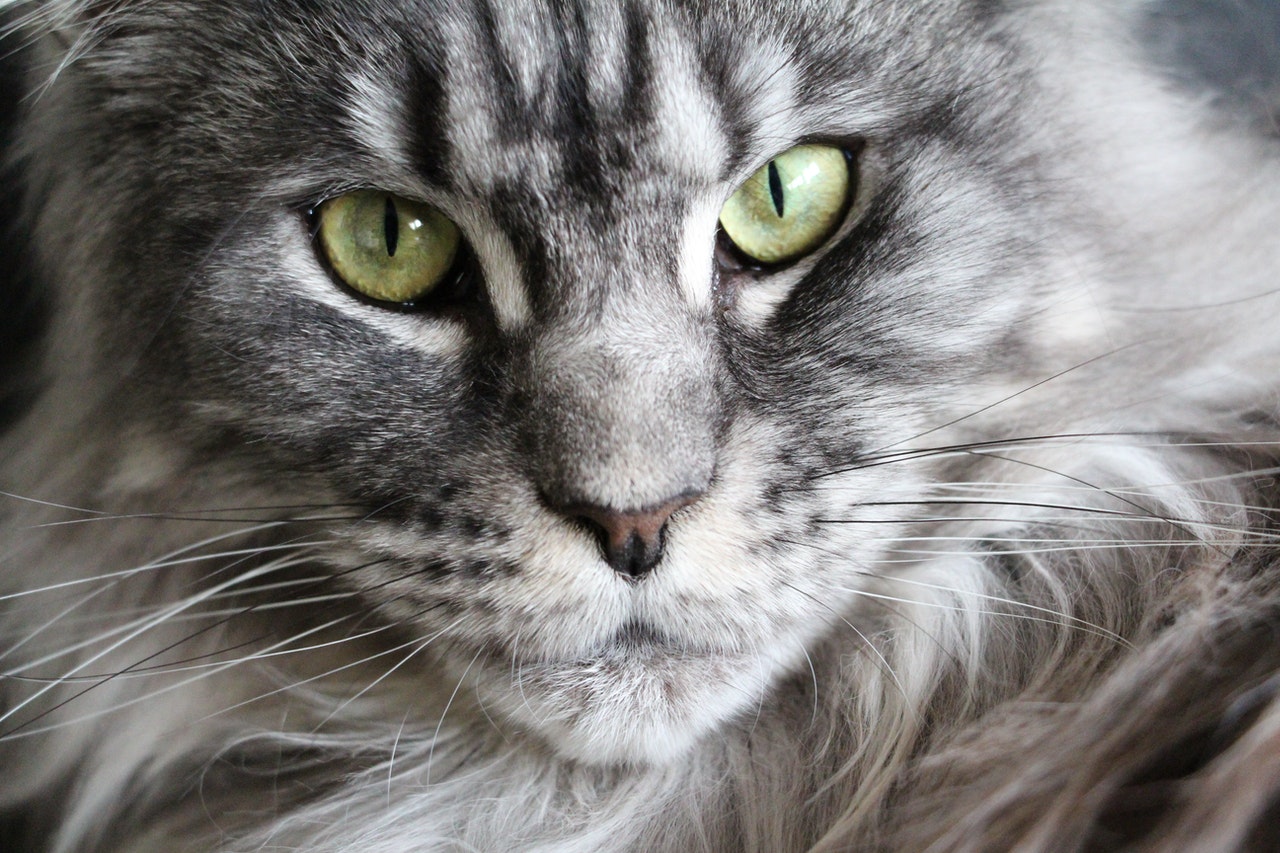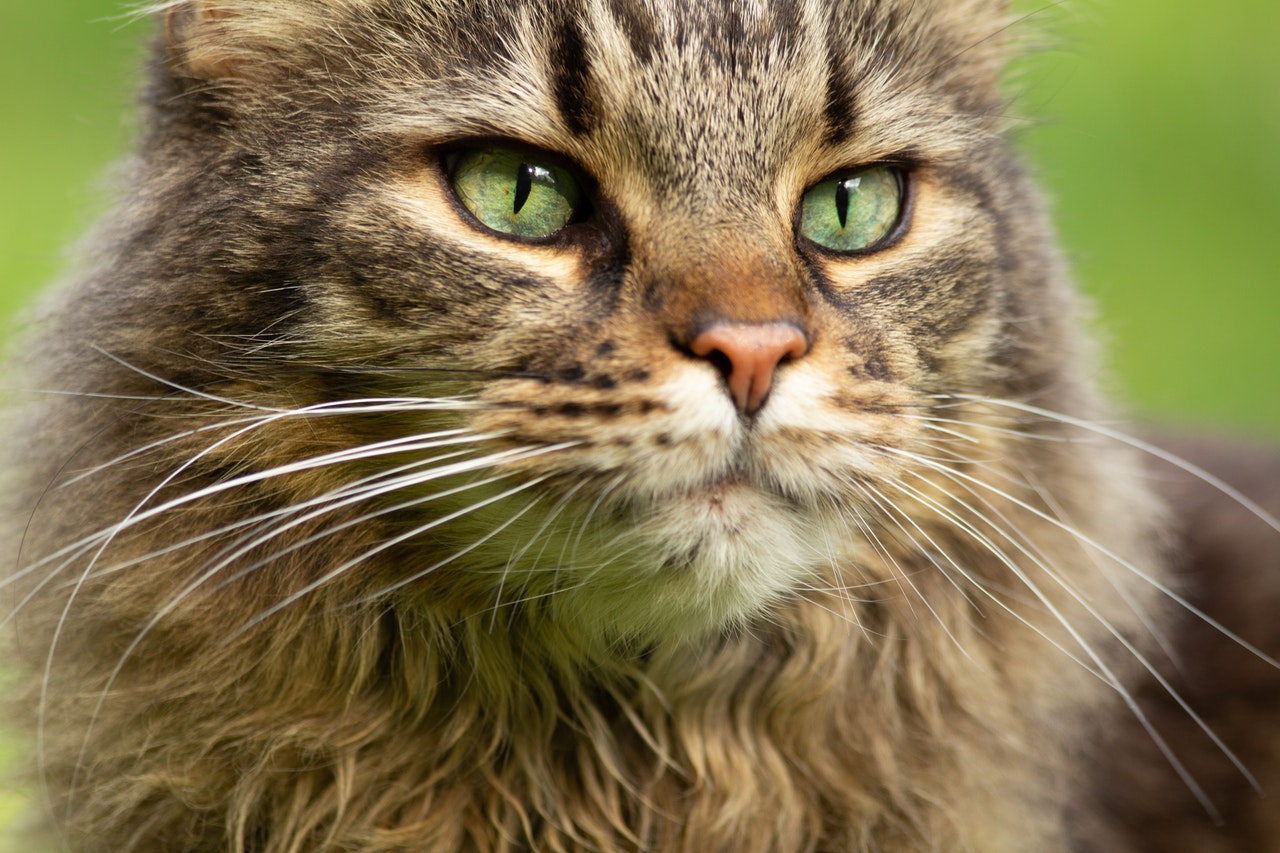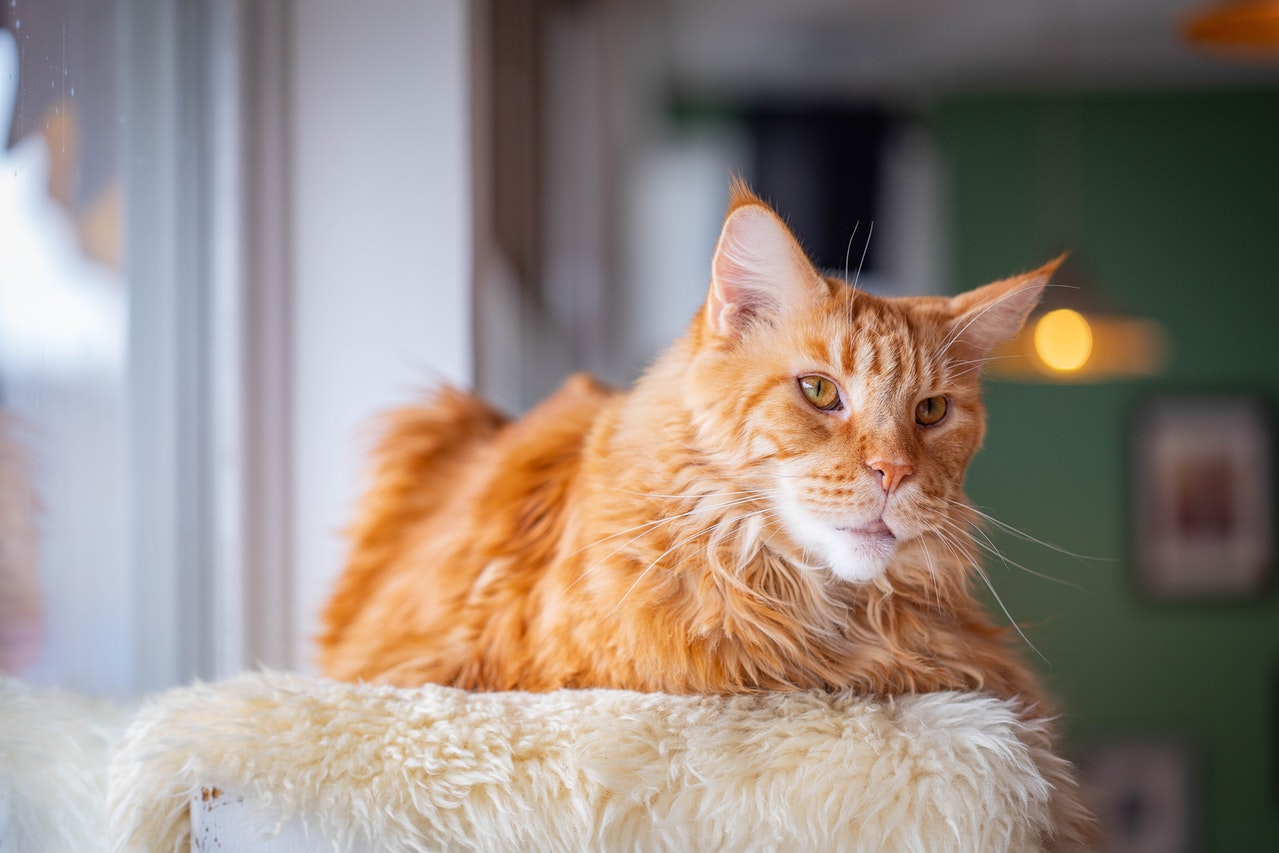So you have a Maine Coon cat. Congratulations on sharing your life with one of the largest domestic cat breeds in the world. According to an urban legend that’s since been scientifically busted, Maine Coon cats were once believed to be a cross between a feline and a raccoon. Famous for their dense coats and unwavering devotion to their human family members, these gentle giants make the purr-fect companions for first-timers and veteran pet parents alike. But these stunning felines aren’t as low maintenance as some people believe. Have you ever wondered, “Do Maine Coon cats shed?” Here’s the full scoop.

Do Maine Coon cats shed badly?
As the breed’s name indicates, Maine Coon cats hail from the glorious state of Maine. While Maine is undeniably beautiful, it’s also freezing cold during the winter months – the average high in January is a chilly 23 degrees Fahrenheit. To combat the chill, Maine Coon cats developed two undercoats and a thick topcoat. So, does that impact the amount they shed? Confusingly, the answer seems to be: “Maybe.”
All cats are individuals, so it stands to reason that all cats have their own shedding cycles. While some Maine Coons leave behind enough fur to craft into cat toys, others will only shed seasonally. Shedding is the process of dead hair dropping off, making way for new regrowth and releasing the skin’s natural oils. Shedding is essential for your cat to maintain a healthy, shiny coat. But if tackling your clothes with a lint roller on a daily basis is getting on your nerves, don’t worry. We’ve got a few tips that can make grooming your Maine Coon cat much easier.
How do you stop Maine Coons from shedding?
Having a cat is a lot like sharing your home with a furry, magical being. But sometimes you’re tired of finding cat hair on your clothes, your furniture, your floor, your — Well, you get the picture. But what can you do about it? Some say that fluffier Maine Coon cats are more likely to shed than cats with silkier coats, while others claim it’s actually the condition of your cat’s coat that causes the amount of hair fall. Fortunately, there are a few steps you can take to reduce the amount of hair your fur baby sheds, including:
- Brush your cat daily to keep their coat free of mats and distribute their skin’s natural oils throughout their coat.
- Use wipes to reduce the amount of dander buildup, which can lead to dry, flaky skin and hair fall.
- Speak to your veterinarian if your cat begins to shed much more than usual, as this could be a sign of an underlying health condition.

Do Maine Coons have hair or fur?
Hair and fur are typically used interchangeably, but did you know they’re not really the same thing? Unlike hair, which is softer and silkier, fur is denser and coarser, offering extra protection against frigid climates. Maine Coon cats have three layers of fur that make up their plush, luxurious coats. In addition to their thick coats, Maine Coons have a lionlike mane around the neck and chest, and their ears are usually tufted. Ultimately, you’ll still hear others (even veterinarians and professional groomers) refer to a Maine Coon’s coat as “hair,” but now you know the answer — it’s actually fur.
How often should you give a Maine Coon a bath?
It’s a common misconception that only outdoor cats need regular baths. In reality, most cats should be bathed an average of once a month – but there are a few exceptions, like Sphynx cats. Bathing your Maine Coon monthly helps to reduce oily buildup, removes excess dander, and helps to control your cat’s shedding. That being said, you should avoid bathing your Maine Coon cat too frequently, as this can leave her skin (not to mention her gorgeous coat) dry and dehydrated. Here are a few tips that can help you bathe your fur baby without getting clawed to ribbons:
Start grooming as soon as possible
Whether you’ve recently adopted a kitten or a full-grown Maine Coon, you should help them adjust to being groomed as soon as you bring them home. Make sure you start off while they’re calm and happy. Try allowing your cat to play with their brush before you groom them. They’ll be less likely to panic if your cat views your grooming tools as toys.
Take baby steps
We recommend starting off slowly and working your way up. Instead of immediately plunging your fur baby into a sinkful of water, try using pet wipes or a no-rinse shampoo first. Once your Maine Coon is used to being wiped down, you can give a bath a try.
Glove up before bathtime
You can find bathing gloves online (or in most pet stores) that will make the process of working shampoo into your cat’s fur a whole lot easier. Even better? The gloves are thick, offering you a layer of protection against your fur baby’s talon-like claws.

While many people think cats don’t need baths, that myth has been busted. Just like we need showers to remove oily buildup, skin cells, and hair, so do our cats. Fortunately for pet parents, our feline fur babies don’t need to be bathed as frequently as we do. Just remember to take your time, don’t force your cat into the water, and take her to a professional groomer if she refuses to cooperate with you.



